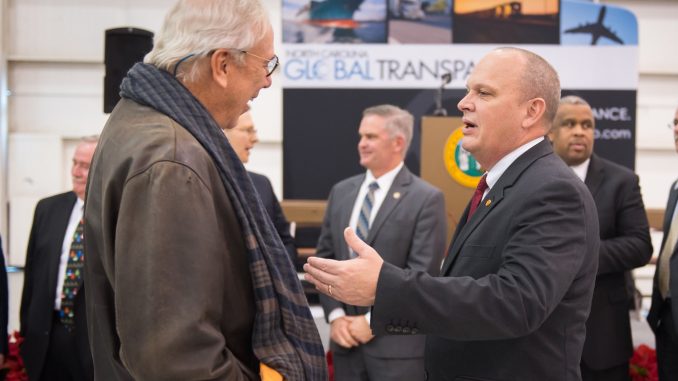
RALEIGH — A recently published audit of the N.C. Department of Transportation’s finances shows the department exceeded its projected cash spending plan for state fiscal year 2019.
The department had projected $5.94 billion but ended up spending $6.68 billion. That represents $742 million or 12.5% in overspending, which resulted in the department being “in danger of falling below the statutory cash floor.”
Overspending in operations and maintenance was the largest, coming in at $578 million with $124 million more under construction projects. The remaining $108 million in overspending fell under categories listed as “other.”
The audit comes after NCDOT acknowledged a budget shortfall which forced the department to cut future construction contracts by $2 billion. NCDOT said in an email to North State Journal that their latest estimate for a budget shortfall of at least $300 million for the remainder of the current fiscal year.
N.C. State Auditor’s audit, identified three areas which caused the department’s overspending. One of the three areas was that the NCDOT spending plan was not based on actual cost estimates of specific projects.
The other two areas identified in the audit fall under the Chief Engineer’s Office, which did not properly monitor highway division compliance and did not enforce highway division compliance. The current Chief Engineer Tim Little was installed in the position in Sept. 2017 by former department Secretary James Trogdon.
In addition to correcting these three areas, the audit said that the state legislature should consider “requiring a level of oversight for the Highway Fund and Highway Trust Fund similar to the level of oversight provided for the state’s General Fund.”
Included in the audit’s findings was the revelation that “no formal documented process was in place” for communicating goals, objectives, and responsibilities needed to comply with the department’s spending plan.
“According to the CFO, the Chief Engineer was responsible for communicating to the division engineers of the 14 highway divisions and ensuring that the plan’s objectives were met,” the audit says.
The audit also suggested that lawmakers consider additional oversight measures, such as requiring NCDOT to periodically report on advance construction and cited and outstanding advance construction balance of $4.8 billion as of Jan. 21, 2020.
“We provided our response and comments about the audit and its findings to the Auditor’s office and it is included in the report that was released Tuesday (pages 27-40). There isn’t anything to add to that,” NCDOT assistant director of communications Steve Abbott said in response to a request for comment by North State Journal.
Rep. John Torbett (R- Gaston), who sits on the Joint Legislative Transportation Oversight Committee, tells North State Journal that he will be looking at the audit.
“It is at least my intent, and some of my colleague’s intent, to look at a reform in the way we spend in the Department of Transportation,” said Torbett.
Torbett said there was some good to come out of the auditor’s report and that nothing bad was done with the money as it all went to road projects and construction, but that someone should have “put their foot on the brake faster.” He also noted that the NCDOT had to make some unusually large expenditures last year including over $300 million on hurricane damage and over $400 million for Map Act related litigation. Despite the movement of those funds, the department, Torbett said the department “still overspent.”
The NCDOT’s overspending has been noticed by credit rating agencies and the state’s credit score could take a hit has a result, according to remarks made by State Treasurer Dale Folwell during a teleconference earlier this month.
“They overspent their budget by billions of dollars and took money out of the Highway Trust Fund, which basically hasn’t been touched for fifteen years,” said N.C. State Treasurer Dale Folwell, adding that the Highway Trust Fund is critical because “it is what we used to pay interest on debt” that NCDOT has incurred over the years.
When asked what official knew there were serious financial issues at the NCDOT, Folwell said that “Trogdon has known about this. The governor has known about this for almost two years now.”
In late October of 2019, Folwell sounded the alarm that the NCDOT had spent $2 billion beyond its designated revenue of $7 billion for fiscal year 2019. Included in that overspending was $1.1 billion in “short-term” loans from the Highway Trust Fund to the Highway Fund between April 2018 and April 2019 that had not been approved by the treasurer.
Folwell said the overspending showed a “lack of managerial control” and called on Governor Cooper to fire Trogdon. Cooper refused, instead issuing a statement that characterized Folwell’s concerns as “not credible.” Four months after Folwell called for Trogdon’s firing, Cooper announced Trogdon had resigned.
Prior to working at the NCDOT, Trogdon had worked for a year at the SAS Institute located in Cary as National Transportation Director. As of March 2020, he is back at SAS as a “Principal Transportation Industry Consultant.”



